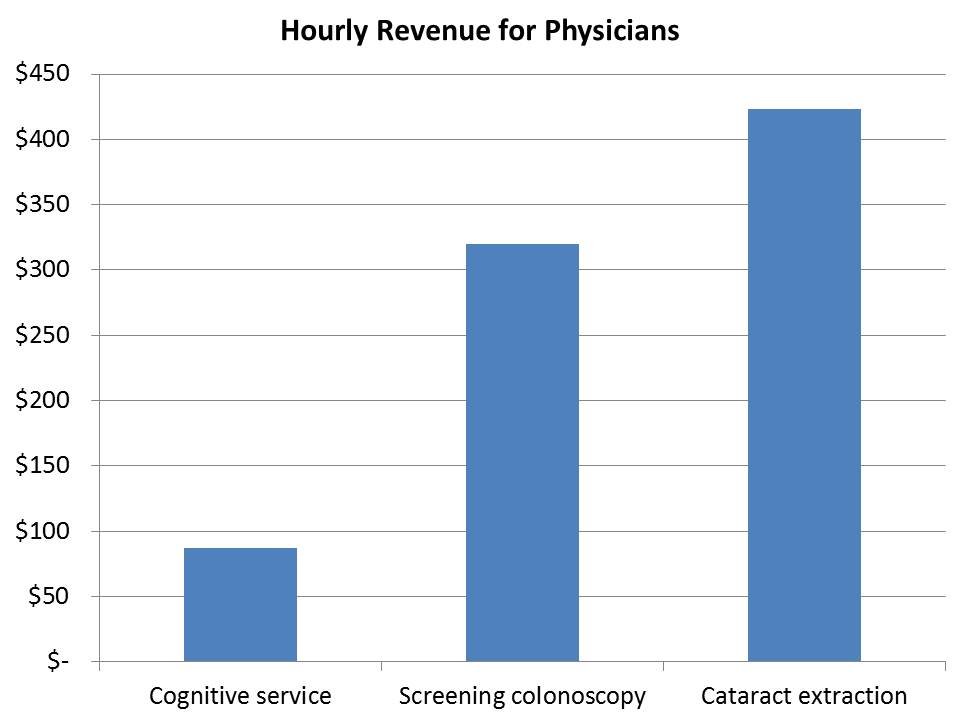Doctors Get Paid More for Doing than Thinking
This is from Aaron Carroll. Entire piece is worth reading.
It’s not that a gastroenterologist can make more than a primary care physician. It’s that a gastroenterologist himself can generate more revenue in less than two hours doing screening colonoscopies than he could providing cognitive services all day. What do you think happens? Doctors are human.



Makes sense.
Really?
Doctors are humans, but that is assuming all humans automatically respond to economic incentives. Maybe the majority but some may be in it for other reasons.
Right. I don’t think all doctors would deliberately rush procedure times to make more money, but a number of them do. And the problem is that in this sense, you’re playing with someone else’s health.
True. Not all incentives are always conducive to something good/positive.
Incentives is an amoral concept.
It’s just upsetting to think it could happen to you — getting a doctor that rushers through a procedure to maximize profit. Colonoscopies are controversial for how short they sometimes are because there are cases that show that longer observance leads to finding hidden issues.
Hmmm, true. I can see that being the case.
There is always a bias for action rather than pondering the course of action. My mechanic has sometimes refused to experiment on my car when the root cause of the problem wasn’t immediately evident. The shop assumed I wouldn’t want to pay for their time to diagnose a complex problem.
Removing cataracts looks like a great profession!
So setting up procedures and staff to provide maximum efficiency for “doing,” and then doing it right every single time, takes no thought at all.
Sounds like some people who write commentary might benefit from a lot more contact with the material world.
Not only do the family docs have to think more, they are also interacting with the patient, who could be elderly, have limited education, limited English,limited social supports, etc. These are all factors which can affect the length of visit and ultimatedly the quality of visit for the patient.
That does not take away from the fact that the physician doing the procedure has liability issues with possible complications, or missing cancers, or causing blindness in a cataract patient.